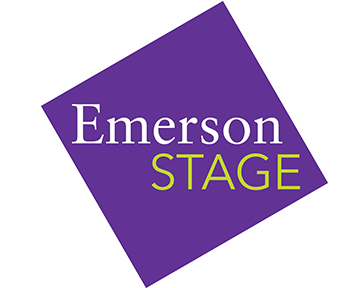Dramaturg’s Note | Baltimore
Baltimore follows a group of college students after a racial incident occurs on their predominantly white campus. Considering the social climate of our community, we wanted to bring this story to life with extreme care and caution, and also a sense of adventure. In one respect, Baltimore asks us to engage deeply with the colonial and capitalistic roots of predominantly white institutions (PWI) and the impact that these roots might have on students of color attending these colleges and universities today. But as we began the rehearsal process, we found that the play also asked us to dig deep into the knowledge and experiences that we carry within ourselves.
Working on Baltimore has been such a thoughtful and rewarding experience. From the moment I found out Emerson Stage would be producing Baltimore, I knew I wanted to be involved in any way, shape, or form. I think the reason is because, reading the script, I saw how realistic this show was, and how it parallels my own experiences attending a PWI. As an international, third-culture, Middle Eastern, Muslim student, I’ve been able to experience the intricacies of U.S. higher education myself. The feeling of standing out while walking down the hallways of Walker, the subtle micro aggressions I hear from some of my own professors, the pure erasure of my background after being able to “fit in” a little too well with the environment and culture around me—these experiences are real. They are not just stories we hear on the news, or from a friend at another university, but right here on our own campus too.
In preparation for this production, I really didn’t know what to expect. It’s difficult to research a topic that is so modern, so prevalent to the world we live in today. A lot of my research didn’t come from traditional academic or historical sources, but rather through the intimate and vulnerable conversations we would have as a company. In a contemporary show about college students, we learned more from each other than we ever would reading a textbook about what it means to be a student of color functioning at a predominantly white institution.
Through those discussions, we were able to discover the heart of the show; the message that playwright Kirsten Greenidge offers to both artists and audiences. At our first rehearsal, we read through the play together. Immediately, the authenticity of this story became apparent to us. While we had found the script compelling on paper, we found that actually speaking these words, embodying this story for our own community, carried an even greater significance.
For the first few rehearsals, we continued to explore the integrity of this show, and the ways in which it resonated with our own experiences as college students. We continued to look into the motivations behind these characters and their actions, the hidden connections that weren’t necessarily said in the script, but were able to be revealed through dialogue, research, and the wisdom of what we know now living in 2021. Sometimes, news from racial incidents on other campuses would enter our rehearsal room, and we would stop to discuss and really understand the connection of this play to our reality, and how present the topic of this show really is, even though it was only written in 2016. These conversations continued, and in some way will always continue, because we are still living through the themes this play presents in our world today.
When we all step out of the Semel today, what do we do next? How do we continue these conversations outside of the theater? How do we include those in the discussion who haven’t yet had a chance to join in? What actions must we take as a community to change the experience of higher education for those who come after us? These are questions that I will continue to ask myself as I wrap up my time here at Emerson and enter the professional field. Baltimore hones in on the question of conversation: the characters wrestle with questions of when to speak and who to speak with—or sometimes they feel a strong temptation to escape the situation and stay silent. Change cannot happen overnight, nor can it be done alone, but Baltimore shows that a community tapping into a discussion like this can create momentum for a different kind of higher education experience than the one we see right now, “to listen and to attend,” as Dean Hernandez says so eloquently in the play. So I hope you join me, and the rest of this company of Baltimore, in the conversation that is going on right now.
Thank you,
Omar Mardini
Assistant Director & Dramaturg
Baltimore by Kirsten Greenidge opens to the public on Thursday, October 28 at 8 p.m. EST through October 31 at 2 p.m. EST. More information and tickets are available at emersonstage.org/baltimore.
